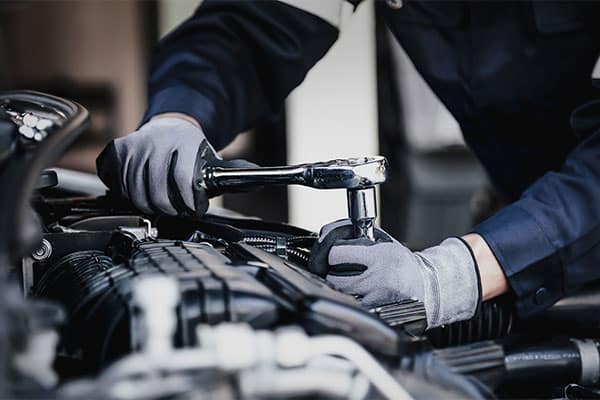All Categories
Featured
Your lorry's brakes are one of one of the most essential parts in ensuring your safety and security and the safety and security of others on the road. Normal brake evaluations are important to preserving ideal stopping performance and avoiding expensive repair services. Whether you're a seasoned automobile proprietor or a brand-new driver, comprehending brake evaluation standards can help you stay positive about upkeep and guarantee your lorry is constantly roadworthy.
- Why Brake Inspections Issue. Brakes go through constant deterioration. The more you drive, the extra rubbing your brake pads endure, eventually resulting in minimized braking efficiency. Without proper examination, it's challenging to gauge when your brakes might be in requirement of repair. Normal brake checks help recognize concerns beforehand, stopping potential failures that can put you in jeopardy.
A properly maintained brake system ensures quick, responsive quiting power, particularly in emergencies. It additionally assists extend the life of your car, as neglecting brake upkeep can result in a lot more extreme, costly issues later on.
- Indications You Need a Brake Assessment. While it's critical to have your brakes checked periodically, certain indications may indicate that they require attention. Watch (and ear) out for these caution signals:
Squeaking or Grinding Sounds: Uncommon audios, especially a piercing squeal or grinding noise, often suggest that your brake pads are worn down. Vibration or Pulsation: If you really feel resonances or a pulsing experience when pressing the brake pedal, it could be an indicator of warped rotors or uneven brake pad wear. Lowered Brake Responsiveness: If your brakes really feel less responsive or you have to press the pedal harder to reduce, it might suggest air in the brake lines or low brake fluid. Drawing to One Side: If your automobile draws to one side when stopping, it could suggest unequal brake pad wear or a brake fluid leak. Dashboard Warning Lights: Some vehicles have brake-related warning lights that indicate issues like reduced brake fluid or worn brake parts. If you discover any one of these signs and symptoms, it's essential to have a professional mechanic do a brake assessment as quickly as possible.

- What Happens During a Brake Inspection? During a brake evaluation, a technician will certainly examine several crucial elements of the stopping system to guarantee every little thing is in working order. Here's what you can anticipate throughout the process:
Brake Pads and Shoes: The auto mechanic will evaluate the density of the brake pads or shoes. If they're too slim, they'll need to be changed. Brake Rotors: Blades are the discs that the brake pads press against to reduce your car down. They'll be looked for any indicators of wear, racking up, or bending. Brake Liquid: Low or polluted brake fluid can harm braking efficiency. The specialist will certainly check the fluid degree and high quality and top it up or purge it if needed. Brake Lines and Hoses: Brake lines bring fluid from the master cyndrical tube to the brakes. The technician will inspect for any leakages, cracks, or damage to guarantee proper fluid flow. Brake Calipers and Wheel Cyndrical Tubes: Calipers and wheel cylinders press the brake pads versus the blades or drums. The specialist will certainly look for wear, leakages, and correct procedure. 4. Just how Usually Should You Have Your Brakes Inspected? The frequency of brake examinations relies on variables like your driving behaviors, the sort of automobile you drive, and the atmosphere in which you drive. As a basic regulation, it's an excellent concept to have your brakes evaluated every 12,000 miles or annually. If you experience any of the caution signs mentioned earlier, it's vital to obtain your brakes examined instantly.
For those that frequently drive in rush hour, mountainous terrain, or harsh climate conditions, more constant inspections might be necessary.
- Importance of Timely Brake Repair Works. When you discover a trouble with your brakes, it's vital to resolve it right now. Postponing brake fixings can result in even more significant damages to your stopping system, causing greater repair work prices. In extreme instances, neglecting brake concerns can lead to finish brake failure, which is a significant security danger.
By remaining on top of brake maintenance and resolving issues promptly, you make sure that your brakes continue to do as intended, keeping you and your travelers secure on the road.
Conclusion: Keep Your Brakes in Leading Forming. Brake assessments are an easy yet essential part of car maintenance. By recognizing the value of normal evaluations, knowing the indications of brake concerns, and staying positive with fixings, you can ensure your car's stopping system stays in ideal condition.
Latest Posts
Discover the Premier Auto Repair Discounts in Montclare, Chicago
Smooth Light Weight Aluminum Rain Gutters: The Smart Selection for Your Home
Identifying When Your Car Needs Skilled Auto Repair at Montclare Auto Repair
More
Latest Posts
Discover the Premier Auto Repair Discounts in Montclare, Chicago
Smooth Light Weight Aluminum Rain Gutters: The Smart Selection for Your Home
Identifying When Your Car Needs Skilled Auto Repair at Montclare Auto Repair
